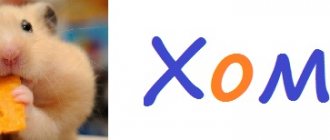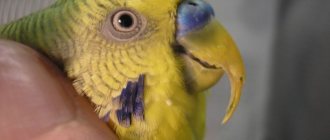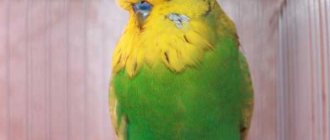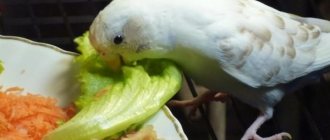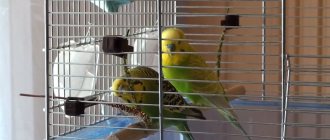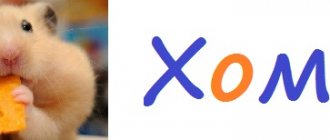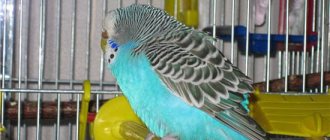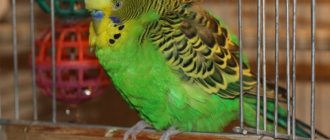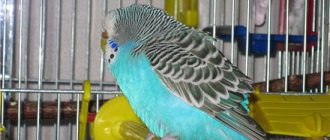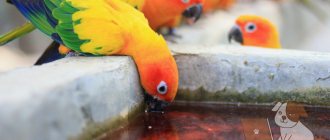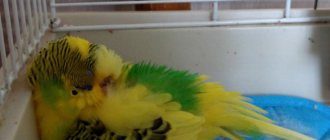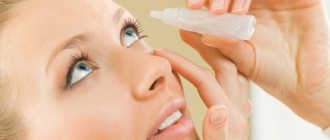Changes in the behavior of a feathered pet should always alert the owner. Birds have an accelerated metabolism, and the development of diseases also occurs quickly. If you miss the early signs of the disease and do not start treatment in a timely manner, the disease can become severe and lead to irreparable consequences for the body. One of the symptoms of health problems is sneezing. If a parrot is sneezing, the owner should determine the cause of this phenomenon as soon as possible in order to understand what measures should be taken to eliminate it.
Why does a parrot sneeze
The reasons why a budgie is sneezing can vary, and not all of them indicate an illness in the bird. There are dry and wet sneezing. When a parrot sneezes wetly, discharge from the nasal openings is noted; when dry they are absent. Dry sneezing occurs when:
- dry air where the parrot lives;
- molting;
- irritation of the respiratory tract by dust, particles of food or bedding.
In these cases, the sneezing is intermittent and often resolves without owner intervention.
Wet sneezing is a more dangerous symptom, indicating the presence of one of the following pathologies in the parrot:
- cold;
- viral, bacterial or fungal infection;
- mite infestation;
- foreign body;
- allergy;
- vitamin A deficiency;
- neoplasm.
In these cases, it is necessary to consult a specialist for the correct diagnosis and treatment of the parrot.
Disease
Parrots get cold easily due to drafts, cold indoors and swimming in cold water. When a parrot has a cold, it sneezes with mucus-like snot, breathes heavily, moves little, sits ruffled, and eats poorly.
With viral, fungal and bacterial infections, the condition of the bird is more severe than with a regular runny nose. The budgie constantly sneezes, there is copious, purulent discharge from the nose. Body temperature is elevated, breathing is difficult, with wheezing. Lethargy and refusal to feed are noted.
If the parrot sneezes and jerks its head, this indicates that the bird is infected with a tracheal mite. Parasites can enter the bird's body through food or water. Mites parasitize inside the trachea, irritating the mucous membrane and causing sneezing.
With vitamin A deficiency, the condition of the mucous membranes worsens. Their surface becomes dry and cracks appear on it. Therefore, in addition to sneezing, the parrot may experience bloody discharge from the nasal openings.
Neoplasms occur most often in older birds. Their symptoms: difficulty breathing, lethargy, refusal to feed, weight loss. Discharges can be present only on one side - from the nasal passage in which the tumor is located.
Other reasons
In nature, parrots live in areas with humid air. In captivity, too dry indoor air, especially during the heating season, irritates the mucous membrane of the respiratory tract and causes sneezing. At the same time, the parrot rarely sneezes, and no discharge is observed.
A bird may also sneeze when the mucous membrane of the respiratory tract is irritated by small particles of debris accumulated in the cage: husks from grains, fragments of litter, dust, fluff and feathers. In addition, parrots often sneeze during molting, when fluff and skin particles get into the nasal passages and irritate them. In this case, the sneezing will also be dry and infrequent.
In some cases, birds develop an allergic reaction, which is accompanied by wet sneezing and watery eyes. Allergies can be caused by: tobacco smoke, dust and dust mites, food components, household chemicals.
If a foreign body enters the nasal passages, difficulty breathing and copious discharge may occur, which may contain blood. The bird may try to remove the object with its paws or rub its beak against the perches and bars of the cage. Over time, the clear discharge becomes purulent in nature.
Causes
There are the following reasons for a parrot sneezing:
- Physiological. Particles of dust, fluff or food irritate the nostrils, and the bird gets rid of the interference. The parrot, after sneezing several times, calms down and stops forced exhalations.
- Imitative. Perroque imitates one of the sneezing people.
- Pathological. Accompanied by splashes from the beak. Occurs for the following reasons:
- allergy;
- respiratory infection;
- knemidocoptosis;
- tumor.
When suffering from a respiratory illness, a parrot hides its head under its wing
What to do if your parrot sneezes
If your parrot is sneezing, it is necessary to determine the cause of this phenomenon before taking any action. It can be indicated by the nature of the sneezing (dry or wet), as well as the presence or absence of other symptoms in the bird.
If sneezing is caused by lint (for example, during shedding) or debris entering the respiratory tract, you should clean the cage more often. During the heating season, it is recommended to irrigate the air with a spray bottle and offer the bird a bath to moisturize the skin and mucous membranes. If the cause of sneezing is an allergy, it is necessary to determine what caused it and prevent the pet from coming into contact with this substance.
If your parrot sneezes due to illness, you must seek help from a veterinarian who will make a diagnosis and prescribe treatment. Incorrect or untimely treatment can harm the bird. Before contacting a specialist, you should take the following measures:
- isolate the sick parrot from other birds;
- place the cage in a quiet place, protected from drafts and bright light;
- if the room temperature is low, an incandescent lamp or infrared lamp should be installed above the cage for heating;
- If there is no appetite, the bird is fed from a syringe with a mixture for chicks.
If you have a cold, you can take inhalations. To do this, place a bowl of hot water at the bottom of the cage, into which eucalyptus or tea tree essential oil is added (5 drops per 100 ml of water). The cage is covered with a cloth and left for 10-15 minutes. The procedure is carried out 2 times a day.
In addition, you can give your parrot a chamomile infusion or a mixture of water and honey to drink. The liquid is poured into a separate drinking bowl and changed every 2 hours.
Symptoms
The following symptoms indicate a respiratory disease:
- Constant sneezing.
- Nasal mucous discharge.
- Decreased appetite.
- Labored breathing.
- Streaks of frozen mucus extend from the nostrils.
- The parrot ruffles its feathers and hides its head under its wing.
- Rubs its beak against the bars of the cage.
- Eyes become inflamed.
- The droppings are liquefied.
Perroque gets syringe fed
Prevention
To prevent your parrot from sneezing, you must follow the recommendations for its care. Proper maintenance, feeding and proper care ensure the formation of strong immunity and prevent the occurrence of health problems in the bird.
The parrot is kept in a warm, well-ventilated room without drafts or foreign odors. The air in the room is humidified and the bird has the opportunity to bathe. The cage and accessories are cleaned regularly. The diet is varied and vitamin and mineral supplements are given. When airing or cleaning the room using detergents, the cage is moved to another place.
How to keep your bird from sneezing
Sneezing is not an independent disease, but a sign of unfavorable processes occurring in the bird’s body. If a parrot sneezes frequently, this is a clear symptom of a certain illness.
The owner of the bird needs to adhere to certain rules when caring for the bird in order to minimize all the negative aspects associated with the pet’s health:
- Carefully think through your bird’s diet and buy only high-quality feed mixtures rich in vitamins and microelements.
- Weekly, if necessary and more often, generalize the bird’s home and carry out complete disinfection of the cage and all equipment.
- Make sure that there are no husks left in the cage and remove the fluff in a timely manner.
- Do not keep birds in dusty or dirty areas.
- Keep your parrot away from strong scents.
- Make sure that the air is not excessively dry.
- Keeping it in a dark and damp room is unacceptable.
- Place the cage with the bird in a place away from drafts.
- There should always be fresh, clean air in the room.
It is advisable to carry out seasonal prevention of infectious and colds according to the recommendations of a veterinarian.
Possible complications
If left untreated, the bird suffers from difficulty breathing. Infection of the lungs and other internal organs is also possible.
The owners and other birds living in the house are at risk, so the sick individual must be isolated for a while.
Call a veterinarian to your home 24 hours a day
Ornithologists from our veterinary clinic make house calls around the clock in Moscow and the Moscow region.
This service allows you to:
- spend a few hours on other purposes, rather than on long trips to the veterinary center and back,
- take advantage of affordable prices and convenient payment methods,
- ask all your questions regarding keeping and caring for pets,
- Get a doctor's consultation on all pets living with you.
Call and arrange a convenient day for a professional to come. And if the situation is urgent, an ambulance team is offered, arriving at the scene within 20-40 minutes.
General services
| Prices for services in our clinic | In the clinic and at home |
| Ornithologist visiting your home | from 500 |
| Clinical examination, preliminary diagnosis, consultation | from 500 |
| Telephone consultation | for free |
| Therapy | from 150 |
| Surgery | from 150 |
| Ambulance at home (within an hour) | from 1000 |
Therapy
| Prices for services in our clinic | In the clinic and at home |
| Subcutaneous administration of medication to birds | from 200 |
| Intramuscular administration of medication to birds | from 150 |
| Intravenous administration of the drug to birds | from 500 |
| Bird dropper | from 1000 |
| Administration of the drug intraperitoneally, intraosseously | from 800 |
| Nerve receptor blockade in birds | from 500 |
| Tube feeding of birds | from 300 |
| Cleaning the horny cover | from 400 |
| Resuscitation treatment of birds | from 1500 |
| Infusion therapy | from 250 |
| Intravenous catheter placement | 500 |
| Removing the IV catheter | 500 |
| Removing the Marking Ring | from 200-1000 |
| Taking blood for laboratory tests | from 350 |
| Obstetrics in birds | 1 hour from 500 |
| Washing the crop | from 500 |
| Trimming: | |
| Beak | 500 |
| Claws | 500 |
| Krylyev | 500-1000 |
| Tail | 500-1000 |
Surgery and Traumatology
| Prices for services in our clinic | In the clinic and at home |
| Surgical treatment of wounds | from 200-1000 |
| Stitching | from 300-1500 |
| Application of a splint | from 300 |
| Opening abscesses, hematomas | from 300 |
| Removal of tumors | from 1000 |
| Goiter surgery | from 1500 |
| Cloaca surgery | from 1500 |
| Removal of foreign bodies | from 1500 |
| Eye amputation | from 2000 |
| Pelvic limb amputation | from 2500 |
| Osteosynthesis | from 10000-30000 |
| Surgery for goiter rupture | from 1500 |
| Egg extraction | from 500 |
| Anesthesia for birds | from 1500-3500 |
| Puncture of air sacs | from 1000 |
| Abdominal wall puncture | from 1000 |
Anesthesiology for birds
| Prices for services in our clinic | In the clinic and at home |
| Anesthesia | from 500 |
Ophthalmology
| Prices for services in our clinic | In the clinic and at home |
| Eyelid surgery for inversion, eversion | from 2000 |
| Exenteration of the eyeball | from 3000 |
Laboratory research
| Prices for services in our clinic | In the clinic and at home |
| Taking tests | 500 |
| Clinical blood test | 1000 |
| General clinical blood test | 1000 |
| Blood chemistry | 2000 |
| Microscopy of blood parasites | 700 |
| Smear microscopy | 700 |
| Examination of droppings for protozoa | 1000 |
| Examination of droppings for helminths | 700 |
| Determination of gender | 2000 |
| Histological examination | 2500 |
| Examination of droppings for helminths | 700 |
| Infectious anemia of chickens | 1500 |
| Test for infectious encephalomyelitis | 1500 |
| Analysis for infectious bronchitis of birds | 1500 |
| Analysis for infectious rhinotracheitis in birds | 1500 |
| Salmonellosis test | 1500 |
| Testing for trichomoniasis | 1500 |
| Tuberculosis test | 1500 |
| Examination of droppings for protozoa | 1000 |
| Analysis for psittacosis | 1500 |
| Analysis for pasteurellosis | 1500 |
| Avian influenza test | 1500 |
| Analysis for dysbacteriosis | 2000 |
| Analysis for avian mycoplasmosis | 1500 |
| Newcastle disease test | 1500 |
| Analysis for avian leukemia | 1500 |
| Test for Marek's disease | 1500 |
| Analysis for avian adenovirus | 1500 |
| Analysis for avian circovirus | 2000 |
| Analysis for yeast-like fungi | 1700 |
| Comprehensive analysis for anthropozoonoses | 4000 |
| General bacteriological analysis | 3000 |
| Gumboro disease | 1500 |
| Avian reovirus | 1500 |
Influence of chemicals or foreign objects
Parrots are active birds. They constantly try something “by tooth” when they have the opportunity to move around the apartment. They often chew on something inedible and sometimes harmful to health. Pieces of plaster, small pieces of wallpaper or other materials enter the digestive tract and cause irritation. Discomfort can be caused by small inedible objects that were accidentally swallowed by a mischievous person. Harmful chemicals, fumes from paints or aerosols, smoke from food or cigarettes burnt in the kitchen irritate the mucous membranes, causing coughing attacks.
It is enough to understand the cause and eliminate it for the victim’s condition to improve. It is not recommended to place cages with parrots in the kitchen, where there are often burning odors. Fumes from non-stick cookware have a very bad effect on these pets.
